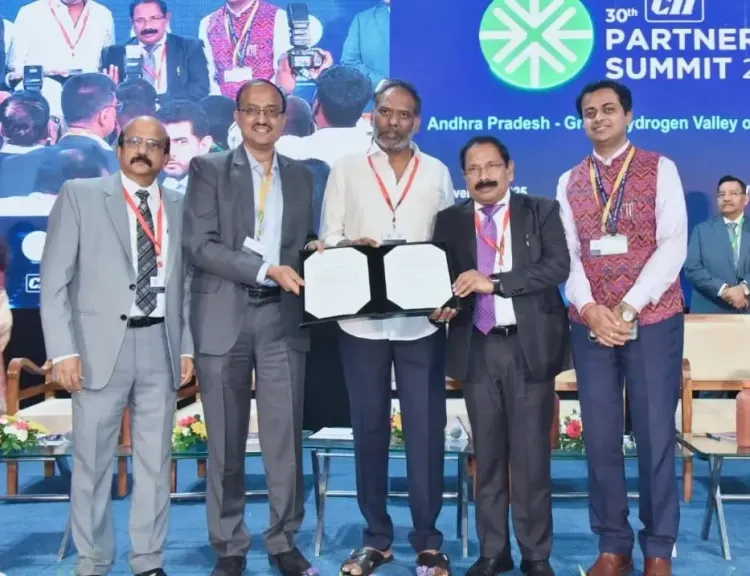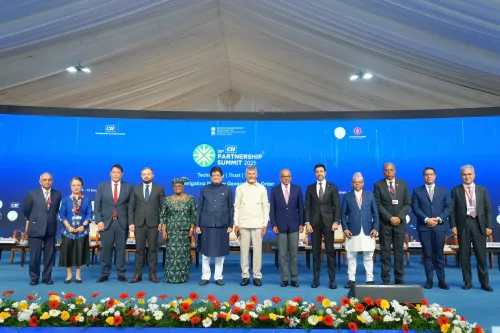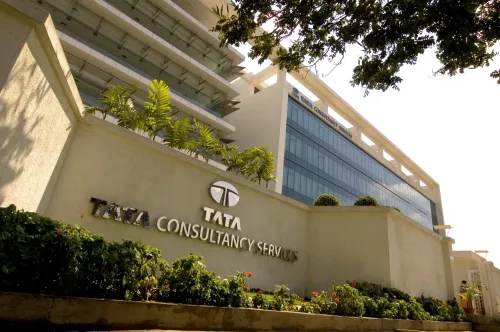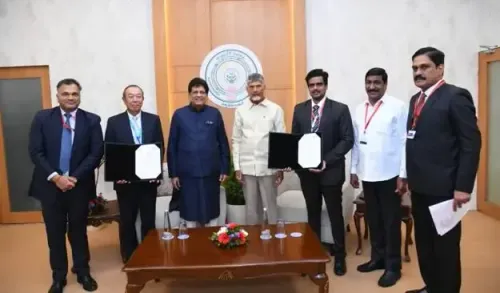Did SECI and Andhra Pradesh Finalize a 1,200 MWh Battery Storage System and a 50 MW Hybrid Project?

Synopsis
Key Takeaways
- The partnership aims to enhance Andhra Pradesh's renewable energy infrastructure.
- SECI is committed to investing fully in the BESS and Hybrid Solar projects.
- The initiative is part of India's broader goal for a sustainable energy future.
- Renewable projects on highway infrastructure will reduce carbon emissions.
- The collaboration signals a positive shift in India's energy landscape.
New Delhi, Nov 15 (NationPress) The Solar Energy Corporation of India Limited (SECI) has officially exchanged government orders (GOs) with Andhra Pradesh for the establishment of a 1,200 MWh Battery Energy Storage System (BESS) in Nandyal along with a 50 MW Hybrid Solar Project, as announced on Saturday.
This exchange of GOs signifies a crucial step in enhancing the renewable energy framework of Andhra Pradesh.
SECI has reiterated its dedication to collaborating with both state and central ministries to expedite India’s transition towards a more sustainable and resilient energy future.
“These initiatives represent a substantial advancement in clean energy storage capabilities, reinforcing the state’s renewable ecosystem and facilitating India’s progress towards a more robust, storage-enabled green grid,” stated the Ministry of New and Renewable Energy.
The GOs were exchanged during the Energy Session at the Andhra Pradesh Partnership Summit 2025, held in Visakhapatnam and organized by the Department for Promotion of Industry and Internal Trade, Government of Andhra Pradesh, in collaboration with CII.
The Ministry of Power designated SECI as the implementing agency for the 1200 MWh BESS project through an order issued on January 23, 2025.
The project received approval from the Chairman of the SECI Board, Santosh Kumar Sarangi, on October 22. The Ministry of New and Renewable Energy is actively overseeing the development of both initiatives.
“Both the BESS and Hybrid Solar projects will be executed under the CAPEX Mode, with SECI assuming full investment responsibilities,” the ministry confirmed.
This week, SECI also signed a Memorandum of Understanding (MoU) with the National Highways Authority of India (NHAI) to facilitate the installation of solar power plants. This agreement will see solar plants set up along the elevated section of Package-1 (Delhi Portion) of the Delhi Saharanpur Dehradun highway in Phase-1.
The aim of the MoU is to promote renewable energy projects on highway infrastructure, tapping into solar energy to power the highways while minimizing the carbon footprint.









